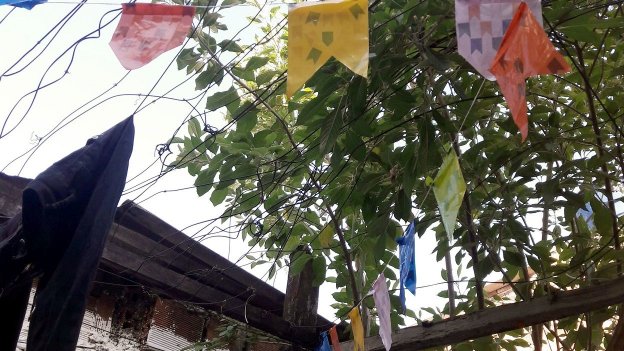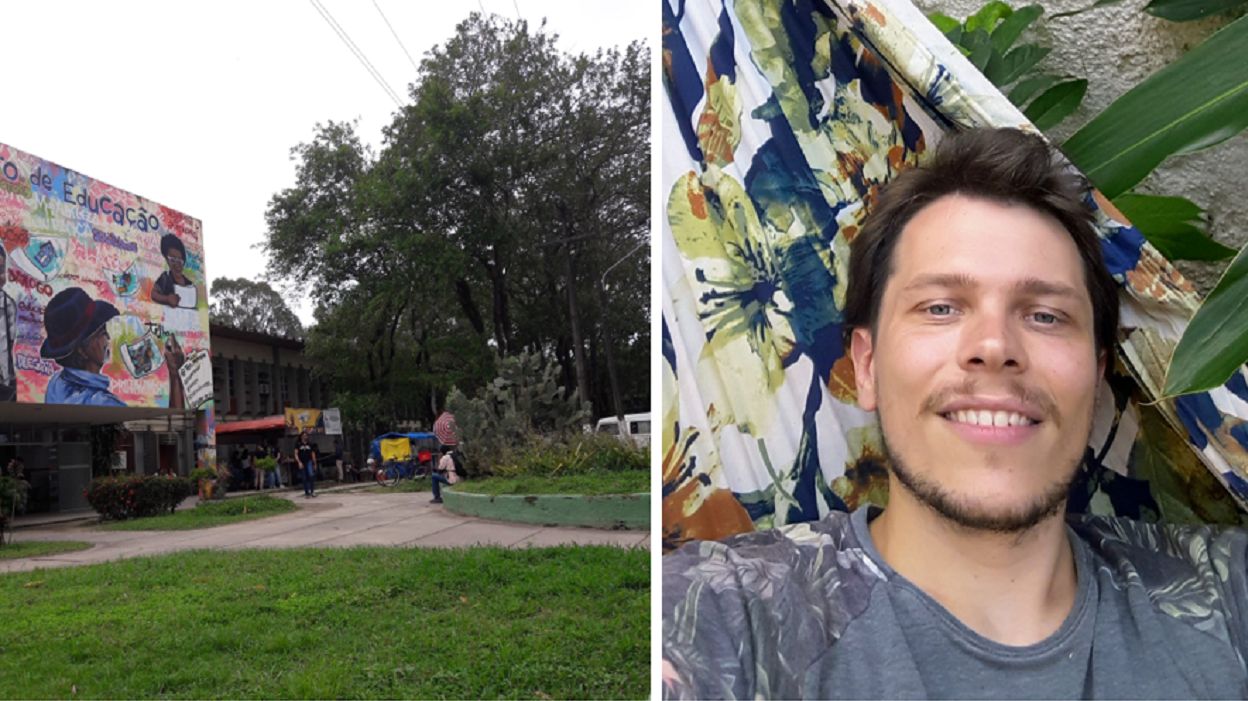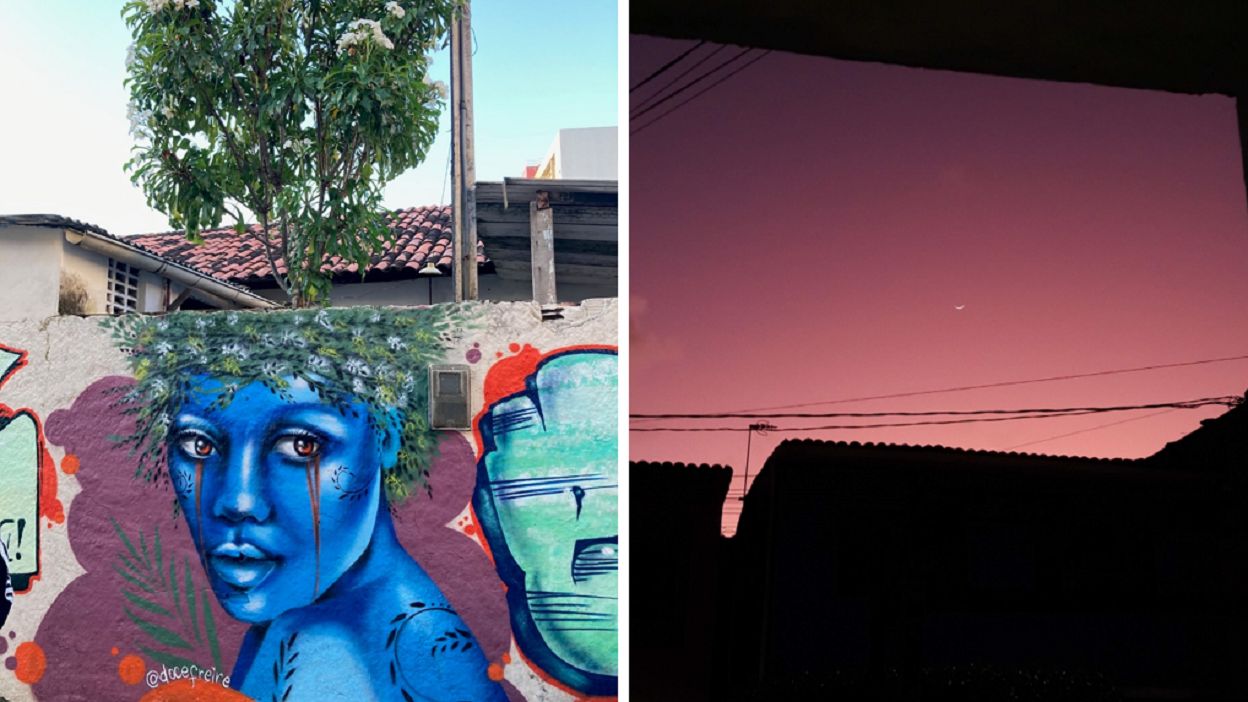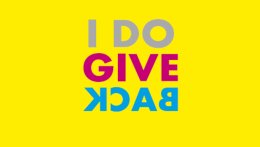Janek Becker
 Privat
Privat
Janek Becker works on leisure practices in marginalised neighbourhoods in Brazil. This photo was part of his personal inspiration.
"The research stay which was possible thanks to a Gustav Schübeck Scholarship allowed me to open up new perspectives. What is more, I got to know many people who have strongly shaped me personally and have already had a positive impact on my academic career. Without the scholarship it would have been impossible for me to undertake a field trip in this form, so I am very grateful to the DAAD-Stiftung."
Janek Becker is a doctoral student in geography who was able to conduct his field research in Brazil thanks to the Gustav Schübeck Scholarship of the DAAD-Stiftung.
In the following, he reports on his dissertation project and his impressions of doing research and living in the Comunidade do Bode.
I spent a semester abroad in Rio de Janeiro during both my bachelor's and master's degrees, so I had already been able to undertake fairly long stays in Brazil. Thanks to funding from a Gustav Schübeck Scholarship, I was subsequently able to complete a research stay in Recife as part of my PhD in geography. For my doctoral thesis I am exploring leisure practices in marginalised neighbourhoods in Brazil. The ethnographic approach I have chosen makes it essential to spend time in the field in order to open up new perspectives on leisure practices and to scrutinise my own patterns of thinking.
Thanks to existing contacts I was able to spend my time living within Comunidade do Bode itself, which meant I could immerse myself in daily life and advance my research. I had previously been in touch with the Geographical Institute at the Universidade Federal de Pernambuco (UFPE) which accepted me as a visiting PhD student. This meant I had a supervisor and a workspace and was able to join regular working group meetings with between five and ten Brazilian researchers. Indeed, I am still taking part in those meetings online today. This connection to the university not only gave me the chance to share academic ideas with PhD students and my supervisor, but it also gave me regular access to a space outside my field where I could reflect on myself and my experiences and put my notes in order. Official letters from the university also gave me access to people working for the municipal administration and conduct initial interviews in this context.

Privat
The Centro de Educação next to the the Department of Geography of the UFPE
Being able to live right in my research field alongside other residents of Comunidade do Bode gave me an excellent opportunity to make contacts and ensured I had easy access to the field. While observing participants I constantly took notes and, as my stay progressed, I enriched these notes more and more intensively by including media content. Taking my experiences in the field as a starting-point, I added photos, voice recordings and soundscapes to my field notes so as to capture my experiences and the emotions and feelings connected with them in a lasting way. I would like to use the data I have gathered in this way in my analysis, including auto-ethnographic reflection on my research.
In the second week I started ‘go-alongs’ with local residents, which was an essential element of my methodology. Going for walks with locals made it easier for me to understand how they perceive their spaces. I was able to identify leisure spaces and gain a better appreciation of day-to-day practices while improving my awareness of spacial contexts. These ‘go alongs’ also allowed me to identify a specific space to focus on, and I went on to examine this space more closely through observations and soundscapes. Towards the end of my stay I used this space as a case study in a lecture I gave at a methodology conference (see: SMUS Conference Brazil 2022 Abstracts Booklet).
From the moment I arrived in Bode, people warmly accepted me and I was able to immerse myself straight away into life and work there. Living in a small shared space with several people in one household made my time there intense, wonderful and occasionally challenging. While I was the only person there who had not grown up in Brazil, I and my housemates were able to reflect on our ways of thinking and dismantle existing prejudices. In addition to helping with day-to-day household tasks, I was also able to contribute to the work of a social and educational collective. I supported the administration of a neighbourhood library, helped with cultural events such as Samba de Coco meetings, films for children and young people, and assisted with setting up a Rádio Comunitários.
Making these part of my daily life opened up new opportunities for me and at the same time made me feel like I belonged. Nevertheless, my position as a researcher and my privilege as a white-coded German man was very obvious and a frequent topic of discussion. At times it was exhausting to constantly reflect on my own role, affiliation and the foreignness which was attributed to me. However, it also opened many new doors and changed how I understand day-to-day processes of stigmatisation. Despite this, I was warmly welcomed into the community and I was even able to make some new friends.
I also gained a new, much deeper perspective into life in Brazil’s major cities. Even though I had already worked on favelas in Brazil, this new insight was a positive surprise to me. On a personal level, I will enjoy recalling the musical diversity and its presence throughout day-to-day life. From Brega-Funk, Manguebeat and Forró to Coco and Maracatu (to name but a few) I got to know new styles and rhythms, while gaining a deeper knowledge of the music with which I was already familiar. I was also very lucky that I was in Bode at the same time as the Pão e Tinta graffiti festival. Equally, I am sure I will miss my morning Munguzá, a sweet brew made of white and yellow maize with sugar and cinnamon, my cup of coffee and all the conversations on one of the few central squares. I am incredibly glad that my stay allowed me to immerse myself in the rich culture of north-east Brazil and also to learn a good deal about the history of the region.

Privat
Graffiti Festival in Bode
I have already been able to identify some findings which confirm the complexity of marginalised neighbourhoods in Brazil. No one favela is like another, and even within these spaces which are defined as marginalised, the built environment, status and living conditions are very heterogeneous. However, stigmatisation is a fact of daily life which in turn influences leisure practices. The first round of field research which I carried out through the scholarship is forming the basis for the first two publications of my cumulative doctoral thesis.
Since returning I have been writing my first paper on a spacial analysis of leisure practices in marginalised neighbourhoods and I have been evaluating my research data. I also intend to develop the case study on the basis of my talk at the SMUS conference with regard to a space/time analysis of leisure practices. Looking ahead to next year I am already planning the first of three further field trips where I intend to explore the neighbouring social housing project and planning perspectives on leisure spaces in marginalised neighbourhoods, as well as following up on interviews.
The stay I have described here not only gave me countless important academic and private contacts, but also gave me deep insight which has already shaped my personal development and academic career. I am very grateful to the DAAD-Stiftung for making this experience possible for me. I would also like to thank the residents of Comunidade do Bode for their warmth and openness towards me, and I look forward to staying in touch with them.
As of February 2022. The German version is the original.


